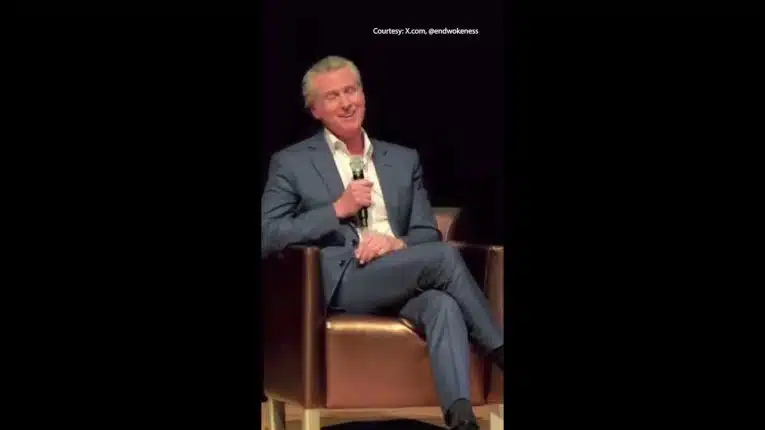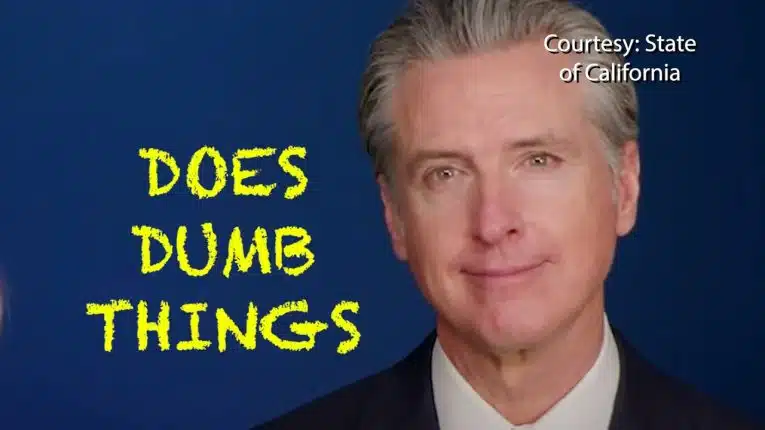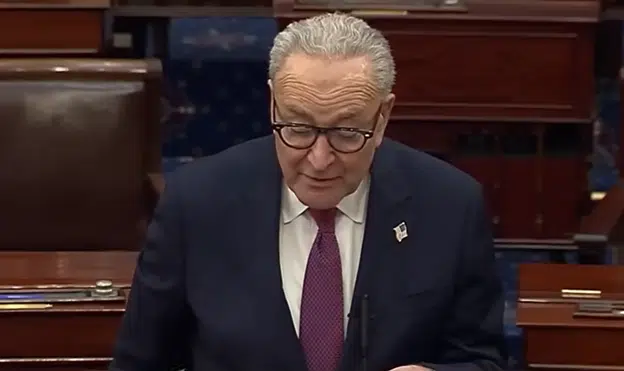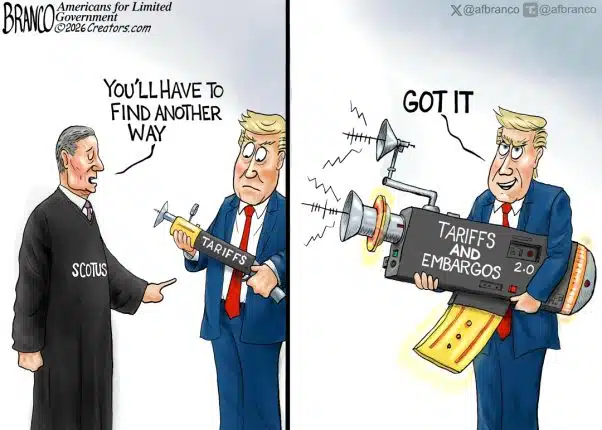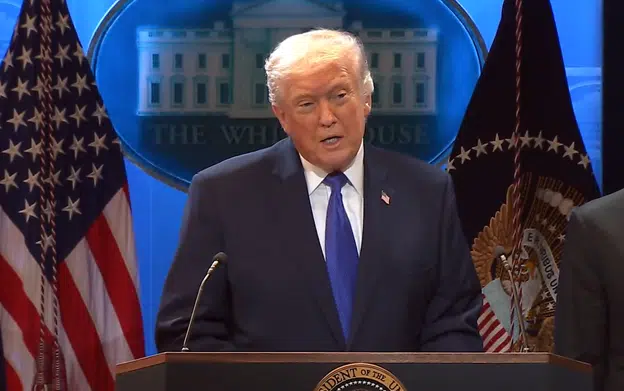Did Obama admit that the National Security Agency (NSA) is recording everything?
Here was the President’s charitable explanation at a June 7 press conference of recent disclosures that the agency is collecting phone records and Internet communications on millions of Americans and non-Americans alike.
“What the intelligence community is doing is looking at phone numbers and durations of calls, they are not looking at people’s names, and they’re not looking at content,” he said. “But by sifting through this so-called metadata, they may identify potential leads with respect to folks who might engage in terrorism.”
But the content of the calls could be revealed, Obama seemingly admitted: “If the intelligence community then actually wants to listen to a phone call they’ve got to go back to a federal judge, just like they would in a criminal investigation.”
Obama insisted, “Nobody’s listening to the content of people’s phone calls.”
Key word there is “listen.” This was the same phraseology used by the agency itself in an April press statement: “One of the biggest misconceptions about [the] National Security Agency is that we are unlawfully listening in on, or reading emails of, U.S. citizens. This is simply not the case.”
Listening in on? Reading? Perhaps not. Even with tens of thousands of employees, the agency simply lacks the manpower to personally listen to and read the trillions of communications it collects and gathers on an annual basis. That’s what powerful computers and data storage are for.
The real question for officials is not if it’s being listened to. It’s whether all this data is being recorded. Obama has seemingly admitted that it is.
Which means William Binney was right.
The government, via the NSA, really is collecting, recording, and storing digitally telephone records, emails, and other Internet communications domestically for the purposes of gathering intelligence.
A former NSA official, Binney certainly was in a position to know. He is a whistleblower who left the agency as technical director of the agency’s world geopolitical and military analysis reporting group in 2001.
After nearly 40 years of service, Binney resigned over the government’s use of a monitoring program that he in part says he helped to design.
“After 9/11, all of the wraps came off for NSA and they just decided to — between the White House and NSA and CIA — to eliminate the protections on U.S. citizens and collect domestically,” Binney said in a 2012 interview with Democracy Now.
Binney revealed the scope of the surveillance: “I would suggest that they’ve assembled on the order of 20 trillion transactions about U.S. citizens with other U.S. citizens. The data that’s being assembled is about everybody. And from that data then they can target anyone they want.”
The Washington Post confirms Binney’s account was accurate. The report, “U.S. mining data from 9 leading Internet firms,” details the extent of the program, called PRISM: “The National Security Agency and the FBI are tapping directly into the central servers of nine leading U.S. Internet companies, extracting audio and video chats, photographs, e-mails, documents, and connection logs that enable analysts to track foreign targets.”
According to agency documents, that includes “[c]ollection directly from the servers of these U.S. Service Providers: Microsoft, Yahoo, Google, Facebook, PalTalk, AOL, Skype, YouTube, Apple.”
Even if the intent is to go after foreign targets, the only way to do what is being described would be to necessarily collect and record everything, even on U.S. citizens, and sort from there.
In March despite being fully aware of the agency’s ongoing general surveillance of all data, National Intelligence Director James Clapper told Congress that citizens’ communications were only “inadvertently” being collected.
“Not wittingly, there are cases where they could inadvertently, perhaps, collect but not wittingly,” Clapper said.
But now we know that all the data is being collected as a matter of design.
Binney explained in 2012 the ease with which it could be done: “All they would have to do is put the various devices at various points along the network, at choke points or convergent points where the network converges and they could basically take down and have copies of most everything on the network.”
As for phone records, it has already been confirmed that at least all of Verizon’s phone records are already being harvested by the agency for potential later use in another disclosure by the UK Guardian.
Supposedly, again, this does not include records of phone conversations.
But even that claim is now questionably suspect, in light of disclosures by Tim Clemente, a former FBI counterterrorism agent, on May 1 on CNN’s Out Front with Erin Burnett.
Burnett asked if the government could listen in, after the fact, to telephone conversations between Katherine Russell, widow of the deceased Boston terrorist bombing suspect, Tamerlan Tsarnaev, and her late husband.
Clemente nonchalantly claimed it was possible: “[T]here is a way. We certainly have ways in national security investigations to find out exactly what was said in that conversation.”
Burnett was shocked, asking again: “So they can actually get that? People are saying, look, that is incredible.”
Clemente replied, “No, welcome to America. All of that stuff is being captured as we speak whether we know it or like it or not.”
So, the agency is recording everything.
And according to Obama, every single member of Congress knew about it, and even authorized the practice by law. The Intelligence Committees of both houses of Congress knew about it. And the Foreign Intelligence Surveillance Act Court routinely approves the database to be accessed.
Yet, not one of them is cited as a source in disclosing this information to the public. It is all whistleblowers inside these agencies who claim the program is too broad, and that it clearly violates the Fourth Amendment’s protections against unreasonable searches.
As for whether federal courts have really approved this process, it may be high time that the Supreme Court get a whack at this. It is hard to contrive that it would forbid police from GPS tracking a motor vehicle without a warrant as in U.S. v. Jones, but then allow the NSA to record everything without any probable cause for later use.
The case would determine if there is any limit to the President’s war powers or not on U.S. soil. But finding a petitioner with standing could be problematic. Even if everyone is being surveyed, unless specific information about this technique leading to arrest and conviction is disclosed or made public, nobody actually arrested for a crime will ever know which conversations were recorded that might have led to a prosecution.
That makes the surveillance program particularly difficult to overturn.
But Congress has no such problems with making law, which they can change. Even if one thought in the wake of the 9/11 terrorist attacks that increased surveillance was necessary to counter threats to the homeland, it is time to reconsider at what cost this protection has come, and what sort of police state is being created in its wake.
Robert Romano is the Senior Editor of Americans for Limited Government.



